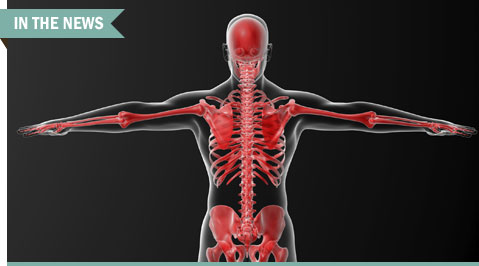
Vitamin D and calcium benefit the bones, but they may not be beneficial for other health outcomes, finds a new review by the Agency for Healthcare Research and Quality (AHRQ). The report, “Vitamin D and Calcium: A Systematic Review of Health Outcomes (Update),” says there is “inconsistent evidence regarding the effect of vitamin D alone or in combination with calcium on most health outcomes,” including heart disease, pregnancy, immune function, falls, and fractures, as well as breast, colon, and prostate cancers, and all-cause mortality.
The authors examined 154 primary articles and two systematic reviews. They found that the findings were “inconsistent across studies for bone health; breast, colorectal, and prostate cancer; cardiovascular disease and mortality; immune function; and pregnancy-related outcomes.”
The new report echoes findings of a 2009 AHRQ report. “In solid agreement with the findings of the original report, the majority of the findings concerning vitamin D, alone or in combination with calcium, on the health outcomes of interest were inconsistent,” the authors wrote. “Associations observed in prospective cohort and nested case-control studies were inconsistent, or when consistent, were rarely supported by the results of randomized controlled trials. Clear dose-response relationships between intakes of vitamin D and health outcomes were rarely observed. Although a large number of new studies (and longer followups to older studies) were identified, particularly for cardiovascular outcomes, all-cause mortality, several types of cancer, and intermediate outcomes for bone health, no firm conclusions can be drawn.”
Also echoing the previous report, the new analysis found that vitamin D and calcium supplementation may have a positive effect on bone mineral density (BMD) and bone mineral content (BMC). Of seven randomized controlled trials identified for the new analysis, two studies were in girls or young women, and “both showed positive effects on BMC and BMD, respectively.” Also, two trials “showed significant improvement in BMD in postmenopausal women receiving vitamin D2 (300 IU/d) or D3 (1,200 IU/d) plus calcium (1,200 mg/d) compared with placebo,” according to the analysis.
Read the full analysis online.